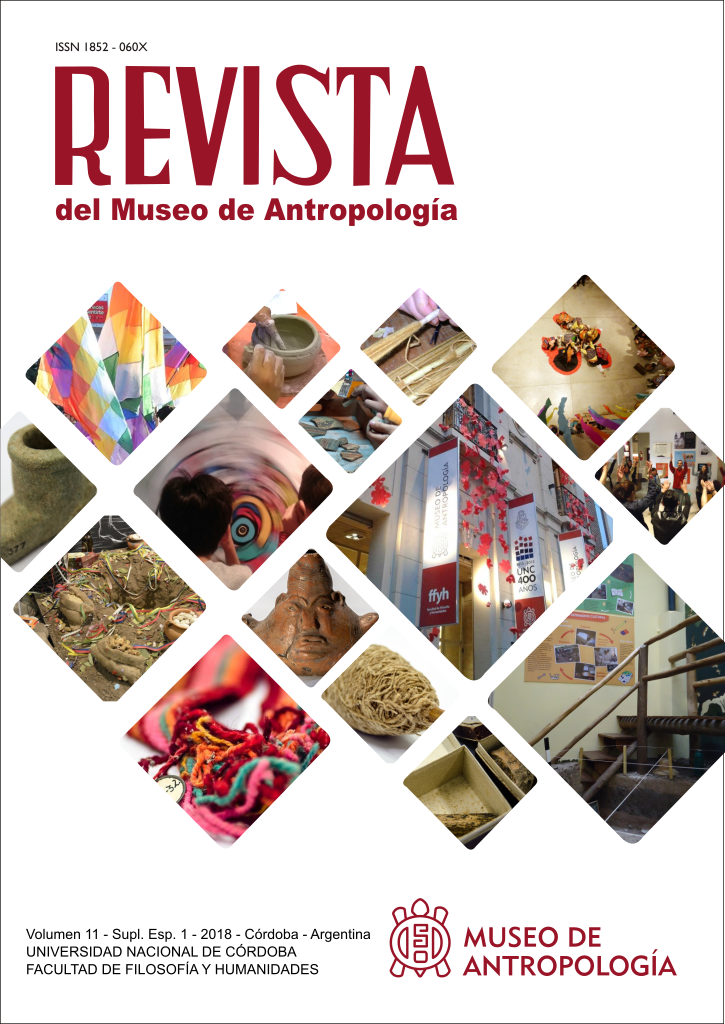Songs and memory in historical narratives of the Suruí of Rondônia (Brazilian Amazonia)
DOI:
https://doi.org/10.31048/1852.4826.v11.n0.21461Keywords:
indigenous Amazonia, Suruí of Rondônia (Indians), ritual song, historicity, narrativeAbstract
This article studies a specific genre of ritual songs among an indigenous people of Brazilian Amazonia, the Suruí of Rondônia. It analyses the influence of these songs on the construction of historical memory. Against theories that reduce the Lowland Indians to “cold societies” that would supposedly deny their own historicity and strive to forget their past, the article shows that these peoples have developed their own tools to select and pass down memories of some kinds of events. The rhetorical and aesthetical forms of these songs, their pragmatic uses, and the Suruí metalinguistic theories are analysed, so as to explain why this discursive genre can appear as the most perfect kind of speech, in the context of the initial composition of a song. Finally, the article examines the conversational uses of quotations of old songs in historical accounts and shows that the narrative structure, particularly the connections between the evoked events, are determined by the rhetorical and aesthetical properties of the quoted songs.Downloads
References
Basso, E. (1985). A Musical View of the Universe: Kalapalo Myth and Ritual Performances, University of Pennsylvania Press, Philadelphia. DOI: https://doi.org/10.9783/9781512819656
Chapuis, J., H. Rivière. (2003). Wayana eitoponpë. (Une) histoire (orale) des Indiens Wayana, Ibis Rouge, Cayenne.
Chiappino, J. (1975). The Brazilian Indigenous Problem and Policy: The Aripuanã Park, IWGIA, Copenhagen.
Fausto, C., M. Heckenberger. (2007). Indigenous History and the History of the “Indians”. Fausto, C., M. Heckenberger, Time and Memory in Indigenous Amazonia: Anthropological Perspectives, 1-43, University Press of Florida, Gainesville.
Goffman, E. (1979). Footing. Semiotica, 25 (1): 1-29. DOI: https://doi.org/10.1515/semi.1979.25.1-2.1
Mindlin, B. (1985). Nós Paiter: os Suruí de Rondônia, Vozes, Petrópolis.
Oakdale, S. (2005). I Foresee My Life: The Ritual Performance of Autobiography in an Amazonian Community, University of Nebraska Press, Lincoln.
Ochs, Elinor. (2004). Narrative Lessons. Duranti, A., A Companion to Linguistic Anthropology, 269-289, Blackwell, Malden. DOI: https://doi.org/10.1002/9780470996522.ch12
Overing, J. (1977). Social time and social space in Lowland South American societies. Actes du XLIIe Congrès international des américanistes, II, 7-394, Société des Américanistes, Paris.
Ricœur, P. (1983). Temps et récit, Seuil, Paris.
Santos-Granero, F. (2007). Time Is Disease, Suffering, and Oblivion: Yanesha Historicity and the Struggle against Temporality. Fausto, C., M. Heckenberger, Time and Memory in Indigenous Amazonia: Anthropological Perspectives, 47-73, University Press of Florida, Gainesville.
Smith, R. (1977). “Deliverance from Chaos for a Song: A social and religious interpretation of the ritual performance of Amuesha music”. Cornell University, Ithaca, Estados Unidos, 326 p. Tese de doutorado.
Travassos, E. (1993). A tradição guerreira nas narrativas e nos cantos caiabis. Penteado Coelho, V., Karl von den Steinen: um século de antropologia no Xingu, 445-483, Edusp, São Paulo.
Yvinec, C. (2011a). “Les monuments lyriques des Suruí du Rondônia (Amazonie méridionale): chants, événements et savoirs”. EHESS, Paris, França, 1148 p. Tese de doutorado.
Yvinec, C. (2011b). Invention et interprétation : chants de boisson et chants chamaniques chez les Suruí du Rondônia. Journal de la Société des Américanistes 97 (1): 151-177. DOI: https://doi.org/10.4000/jsa.11713
Published
How to Cite
Issue
Section
License
Those authors who have publications with this Journalaccept the following terms:
a. Authors will retain their copyrights and guarantee the journal the right of first publication of their work, which will be simultaneously subject to the Creative Commons Attribution License (Licencia de reconocimiento de Creative Commons) that allows third parties to share the work as long as its author and his first publication in this journal.
b. Authors may adopt other non-exclusive licensing agreements for the distribution of the version of the published work (eg, deposit it in an institutional electronic file or publish it in a monographic volume) provided that the initial publication in this journal is indicated.
c. Authors are allowed and recommended to disseminate their work on the Internet (eg in institutional telematic archives or on their website) before and during the submission process, which can lead to interesting exchanges and increase citations of the published work. (See The Effect of Open Access - El efecto del acceso abierto)












